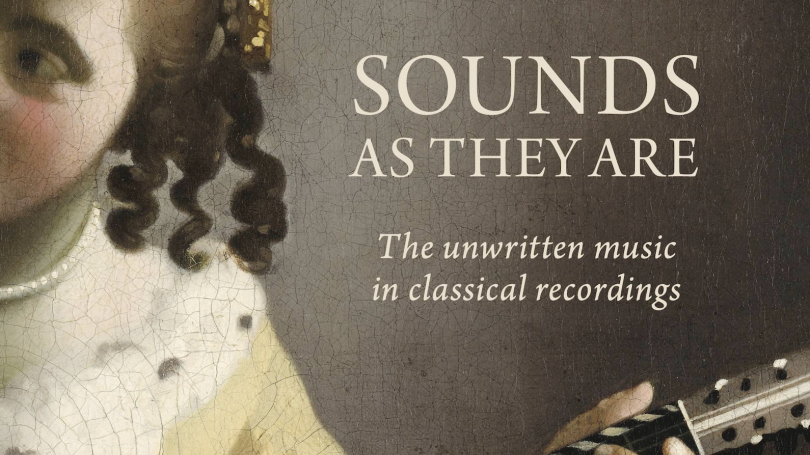
- Undergraduate
- Graduate
- Performance
- Foreign Study
- News & Events
- People
Back to Top Nav
Back to Top Nav
Back to Top Nav
Back to Top Nav
Back to Top Nav
Back to Top Nav
Congratulations to Assistant Professor Richard Beaudoin on the publication by Oxford University Press of his book Sounds as They Are: The unwritten music in classical recordings as part of the series Oxford Studies in Music Theory.
Chapters include Sounds of Breath, Sounds of Touch, Sounds of Effort, Surface Noise, The Aesthetics and Ethics of Unwritten Music, and Inclusive Track Analysis (ITA). ITA is a methodology that pays analytical attention to all sounds that appear on recordings—no matter their origin—and applies to all audio recordings regardless of genre.
From the back cover:
This book not only changes the way you think about music; it changes the way you hear. Spellbinding, ear-opening, and impossible to put down, Sounds as They Are is a groundbreaking exploration of our capacity to listen unconditionally. In a field dominated by extraction and exclusion, Beaudoin compels us to imagine an expansive musical ecosystem in which composers, interpreters, sound engineers, and listeners are all cocreators in a radically transformed experience of hearing and appreciating music. Every musician should read this book.
—Claire Chase, Professor of the Practice, Harvard University
Sounds as They Are helped me remember how I used to listen to music, how to apply that same child-like joy to my performances, and how to (rather literally!) breathe life into my listening. Fearlessly written, a new mode of deep listening emerges from this book, which addresses performers, audio engineers, theorists, musicologists, and everyone who loves recordings.
—Dashon Burton, Assistant Professor of Voice, Blair School of Music, Vanderbilt University
Groundbreaking in its pursuit of equal recognition for all recorded sounds, Sounds as They Are unlocks the latent potential of 'unwritten music.' Beaudoin exposes biases in our perception of classical music recordings, enriching our auditory experience and inspiring innovative scholarly contemplation. His lucid mapping and inventive typology will become standard tools for analyzing sounds that have long been overlooked.
—Yves Balmer, Professor of Music Analysis, Paris Conservatoire